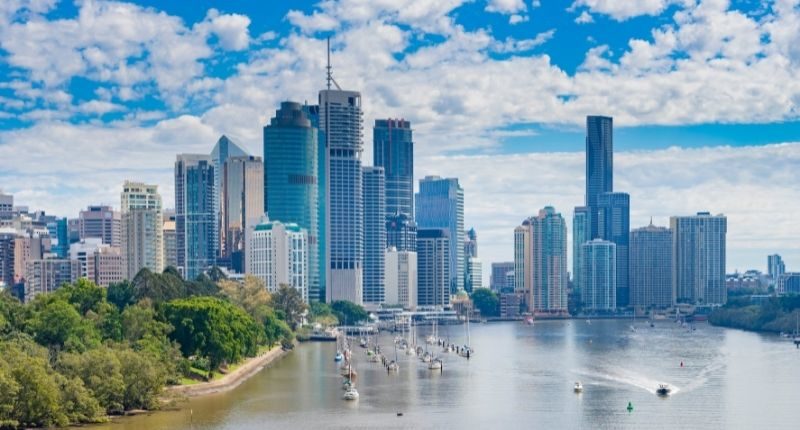- The hostel market in particular has worsened given international and domestic travel bans
- Domestic tourism fell by 42.8% despite increased travel to regional destinations
- Various projects expected to be major drawcards for the Queensland capital
With the pandemic continuing to impact global travel, research conducted by m3property has suggested the Brisbane Olympic in 2032 will help rejuvenate the sector, especially the hostel market.
“The continuing widespread international and domestic travel bans have seen the hostel market struggle,” said m3property research director, Casey Robinson.
“International tourism to Brisbane fell by more than 80% during the pandemic with domestic tourism dropping by 42.8%, however, Queensland itself has benefited from increased travel to regional destinations.
“Backpacker visitation has been declining over the past five years due to legislation introduced in 2017 that classifies working holiday visa holders as non-residents which has led to the number of backpackers coming to Australia reducing their time here and choosing to work in nearby countries.”
Property price growth
Comments on social media around Brisbane property prices suggest that the market is already fairly expensive in Brisbane, with concerns that any more increases could put real estate further out of reach of many.
Asking prices for houses have ticked up from around $1.4 million to $1.6 million since March this year, according to SQM Research:
Brisbane
[Select part of the chart to zoom in on various years, and ‘reset zoom’ button to return]
Demand strong
Ms Robinson noted that domestic demand had remained relatively strong during the pandemic despite the closure of state borders.
“Whilst demand from international tourists is down, domestic demand has remained strong during COVID-19 and whenever restrictions have been eased, there has been immediate demand for accommodation venues and flights,” she said.
“The accommodation market is catering primarily for a purely domestic tourism market as domestic tourists are taking shorter, yet more regular trips.”
Ms Robinson also added there had been delays and postponements across both proposed projects and those currently under construction.
“Longer-term there are competing drivers of tourism although the positives are likely to outweigh the negatives,” she said.
“The global economic outlook is likely to strengthen in 2021-22 and pent-up demand for travel is likely to result in increased travel when confidence returns.”
Based on the 2019-20 Tourism Investment Monitor, there were 30 key tourism projects – defined as projects valued above $20 million – either in the planning or construction phases across Queensland as of June 2020.
The value of these projects was $6.9 billion, representing a fall of $0.7 billion compared to the previous year.
Going forward, Ms Robinson said specific projects such as Queen’s Wharf and the Brisbane Live Entertainment Precinct would be major drawcards for Brisbane in the lead up to the Olympics.
“The Brisbane accommodation market is expected to continue to recover in 2021 as confidence returns to the market, domestic travel increases, and international travel restrictions are loosened,” she concluded.








